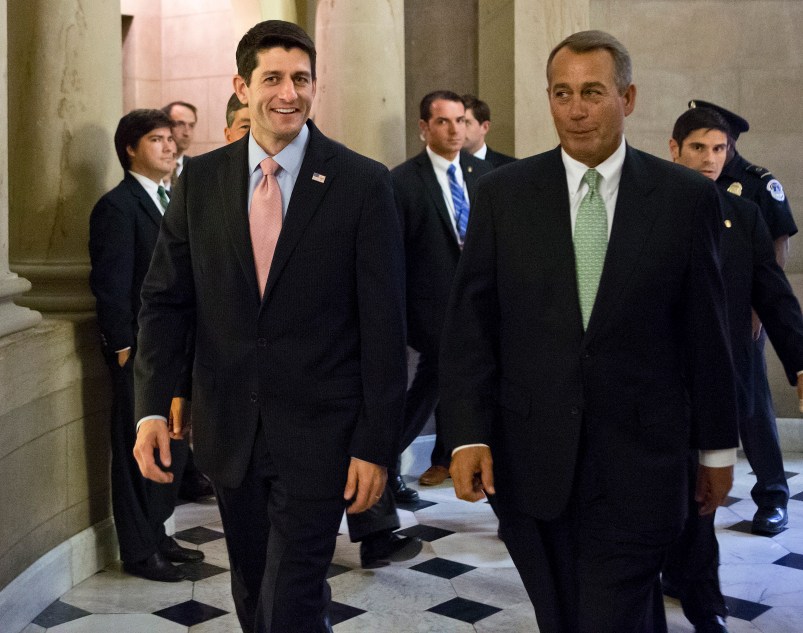House Republican leaders are optimistic about passing of a two-year budget agreement unveiled Tuesday, despite strong opposition from conservative groups who hold substantial influence in the chamber.
Republican leaders are fast-tracking their bill during a Rules Committee meeting Wednesday afternoon, with the aim of holding a full House vote on Thursday.
“We feel very good about where we are with our members,” Rep. Paul Ryan (R-WI) told reporters after a meeting with the Republican conference on Wednesday.
The deal, struck by budget chiefs Ryan and Sen. Patty Murray (D-WA), would raise current spending levels to $1.012 trillion for 2014 and $1.014 trillion for 2015. It would relieve across-the-board sequester cuts with a mix of targeted spending cuts and non-tax revenues like higher airline ticket fees and higher federal worker contributions to their pensions. It is expected to cut the deficit by about $20 billion.
Though modest, the deal would mark a return to the process of normal budgeting and remove the threats of government shutdown after three years of crisis governance.
As Ryan was briefing Republicans on the deal, Rep. Darrell Issa (R-CA) told reporters he believes it will get a majority of the majority in the House.
Conservative Rep. Tom Price (R-GA) also backed the deal. “It is increasingly obvious that success — particularly in divided government — has to be measured in positive steps, not leaps and bounds,” Price said. “This agreement — more than $20 billion in deficit reduction compared to current law with zero tax increases — reflects both that common ground and our conservative principles. Just as important, we are jumpstarting the appropriations process so that future spending decisions reflect our priorities.”
Opposing the deal are Club For Growth, Heritage Action, FreedomWorks and Americans For Prosperity — outside activist groups that have sway among conservatives. In the upper chamber, Sens. Marco Rubio (R-FL) and Rand Paul (R-KY) have come out against the deal, arguing that it raises spending and doesn’t advance conservative values.
The deal will have its share of opposition in the House. Conservative lawmakers who pushed to maintain the sequester spending level of $967 billion won’t vote for it.
“It’s a terrible plan,” said Rep. Raul Labrador (R-ID), declaring that it “undoes everything we set up in the Williamsburg accord” back in January and teaches Democrats that Republicans “will never hold the line” on budget priorities.
“I just don’t think we should be increasing spending,” said Rep. Andy Harris (R-MD).
“The deal is something that accomplishes deficit reduction, permanent pension reform for government employees and it doesn’t raise taxes,” said House Majority Leader Eric Cantor (R-VA).
“We’ve got to find a way to make this divided government work,” Ryan said, arguing that the budget deal takes a step toward “fiscal discipline.”
Meanwhile, House Minority Leader Nancy Pelosi (D-CA) told reporters she’s not sure how many Democrats will vote for the deal, indicating that many are unhappy with it.
This article has been updated.






